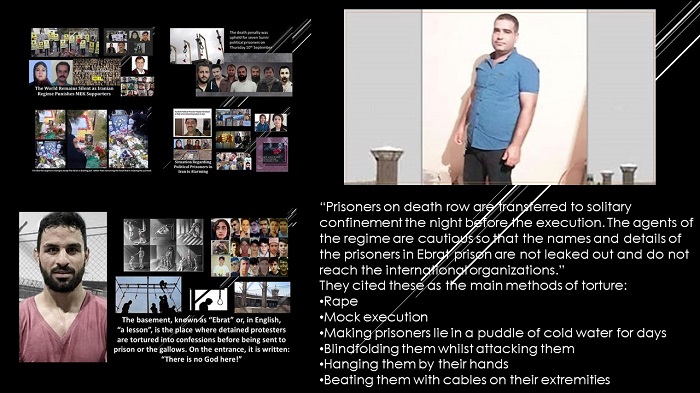

Concerns have been raised over the lives of four Iranian political prisoners who have been transferred from Sheyban prison in Ahvaz, Khuzestan province, to an unknown location.
On September 17, Ali Motiri, Ali Khasraji, Hossein Silavi, and Ali Mojadam were all moved without warning, a common occurrence for prisoners about to be executed, but only three of them – Motiri, Khasraji, and Silavi – have actually been given death sentences.
Authorities of Sheyban prison in Ahvaz, southwest #Iran, have transferred four prisoners, including three sentenced to death, to an unknown location. This has raised concerns about their executions becoming imminent.#StopExecutionsInIranhttps://t.co/i3SvA6ZUHR
— People's Mojahedin Organization of Iran (PMOI/MEK) (@Mojahedineng) September 22, 2020
We don’t know much about the prisoners. Khasraji, 26, and Silavi, 30, were arrested in 2017, but there is almost no information about Motiri. There is slightly more information about Mojadam, 39, who was arrested in February for “measures against the state” and “membership in a dissident group”, which means support for the Iranian Resistance. The married father-of-three was kept in solitary confinement for 63 days from June before being transferred to section 8 of Sheyban.
This came just before the National Council of Resistance of Iran (NCRI) published a report on the literal torture chamber for protesters in the basement (Ebrat) of Shiraz prison, run by the Revolutionary Guard (IRGC) Intelligence Division.
The basement of the Adelabad Prison, is where #Iran’s wrestling champion #NavidAfkari spent his final days before being executed. The notorious basement of the prison is also called “Ebrat” which literally means “a lesson.” https://t.co/Nosx01Vj6x
— IRAN HRM (@IranHrm) September 22, 2020
The report read: “Prisoners on death row are transferred to solitary confinement the night before the execution. The agents of the regime are cautious so that the names and details of the prisoners in Ebrat prison are not leaked out and do not reach the international organizations.”
They cited these as the main methods of torture:
- Rape
- Mock execution
- Making prisoners lie in a puddle of cold water for days
- Blindfolding them whilst attacking them
- Hanging them by their hands
- Beating them with cables on their extremities
Other temporary torture chambers are run by the Ministry of Intelligence and Security (MOIS), the State Security Forces (SSF), Islamshahr Security Police, Niloufar Security Police, and Shahriar Security Police.
Amnesty International reported that over 7,000, including children, were arrested by security forces in connection with the November 2019 uprising, but the People’s Mojahedin Organization of Iran’s (PMOI / MEK Iran) have reported 12,000 arrests and 1,500 shot dead in the streets by security forces.
Special Representative for Iran Brian Hook: “The @Reuters report on the massacre ordered by @khamenei_ir underscores the urgency for the international community to punish the perpetrators and isolate the regime for the murder of 1,500 Iranian citizens.” https://t.co/TpUncLjDcv
— Department of State (@StateDept) December 23, 2019
Reuters confirmed on December 23, 2019, about the deadly crackdown on November 2019 nationwide protests in Iran the death toll of 1500 that was announced by the People’s Mojahedin Organization of Iran (PMOI / MEK Iran) on December 15, 2019.
President-elect Madame Maryam Rajavi called on the United Nations Security Council, the High Commissioner for Human Rights, and the European Union earlier this month to take urgent action to save the lives of Iranian prisoners.
the Shaiban Prison of Ahvaz, the prisons of Urmia, Khorramabad and Sanandaj, as well as a number of PMOI/MEK supporters in Evin Prison. #StopExecutionsinIran #Iranhttps://t.co/ytJG4u3rG9 pic.twitter.com/ORqBH9iNfb
— Maryam Rajavi (@Maryam_Rajavi) September 18, 2020
She said: “They should set up an international fact-finding mission to investigate the killings in November 2019 and visit Iranian prisons.”
MEK Iran (follow them on Twitter and Facebook)
and People’s Mojahedin Organization of Iran – MEK IRAN – YouTube







